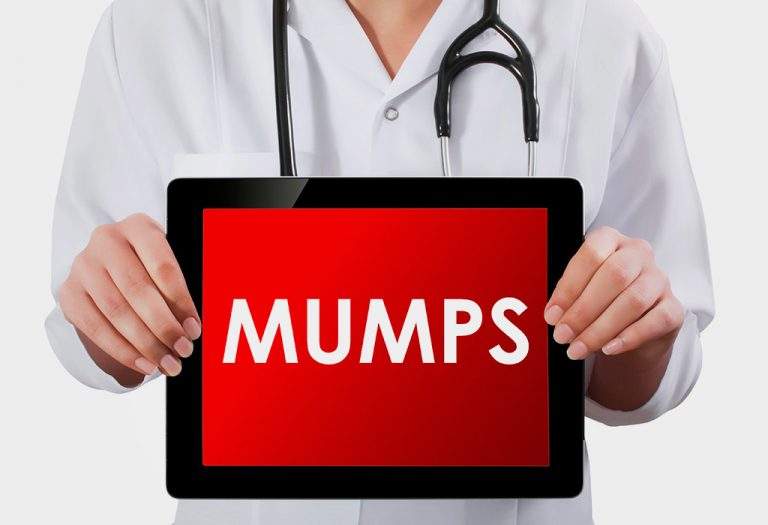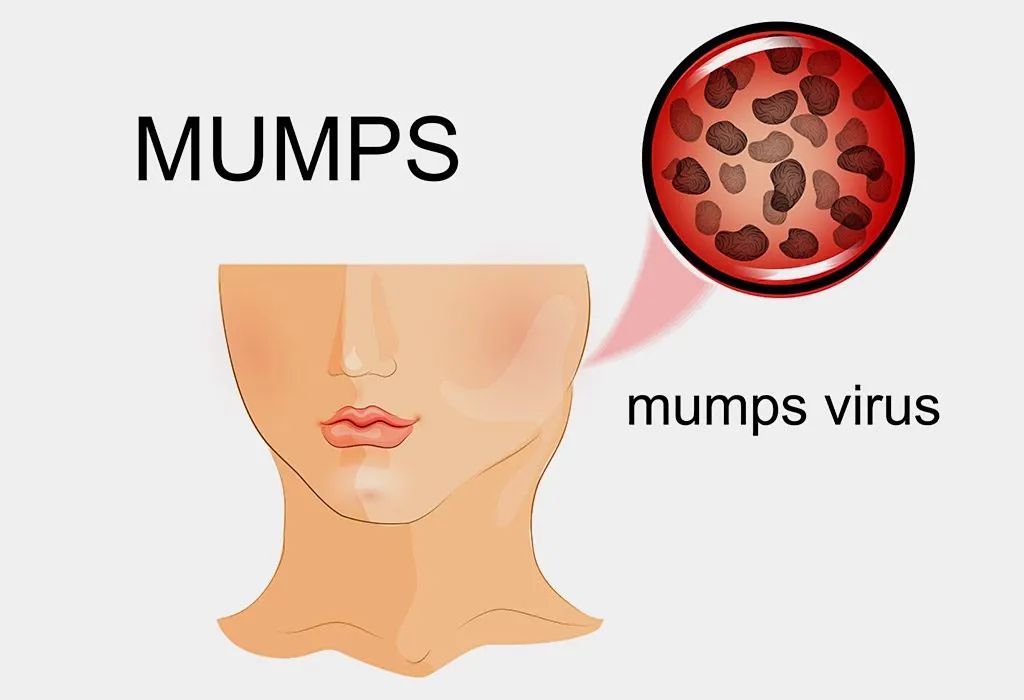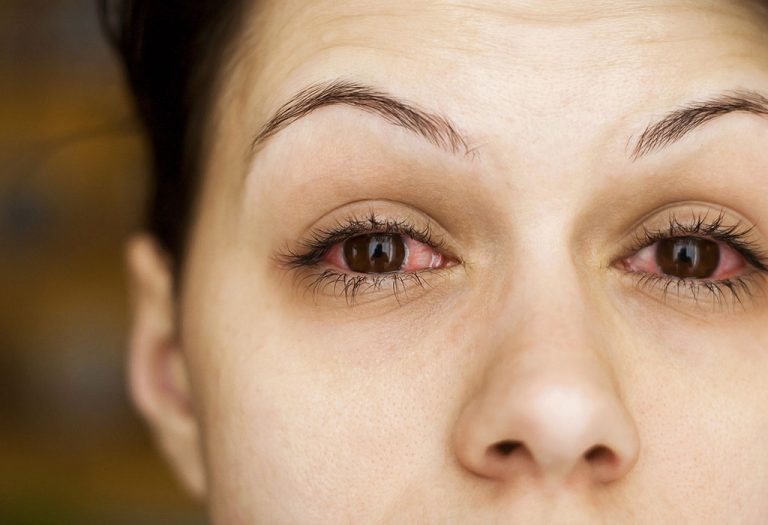Mumps in Pregnancy – Causes, Symptoms and Vaccination

Mumps is a contagious viral infection which is generally observed in children. However, it may also affect a pregnant woman, especially in the early stages of her pregnancy, leading to concerns about mumps and pregnancy. If this infection is left unattended, it may lead to severe complications for both the mother and the developing fetus. Although the first infection usually imparts lifelong immunity, it is best to avoid contracting mumps during pregnancy due to potential risks. The mumps vaccine in pregnancy is generally not recommended, as it contains live attenuated virus, which could pose a theoretical risk to the unborn baby. Therefore, women are advised to complete their vaccinations before conceiving.
What Is Mumps?
Mumps is an infection that manifests in the body in the form of swelling of the glands that make saliva, causing immense pain. In certain cases, various other areas of the body may undergo swelling and inflammation as well (1).
What Causes Mumps?
A paramyxovirus causes mumps. It easily spreads by airborne droplets of infected saliva. It may spread when a contaminated person coughs or sneezes, thereby releasing the pathogens in the air (2). Anyone coming in contact with these pathogens can easily get infected.
How Common Is Mumps in Pregnant Women?
In recent years, the instances of mumps have reduced drastically since most people are vaccinated against it via the triple MMR vaccine. As for pregnant women being infected with mumps, the chances of it happening are barely 1 in 1000.
Who Is at Risk of Getting Mumps During Pregnancy?
Mumps exposure in pregnancy is not a given. Most women would have had the MMR vaccine when they were young, and hence may have the required immunity to protect themselves from it. Even if the vaccine has not been administered, contracting mumps earlier in life does develop immunity for it. An absence of either case can put a pregnant woman at a high risk of contracting mumps, especially if she comes in contact with a person who has mumps in the first place.
Is Mumps Contagious?
Mumps is extremely contagious and can spread from one person to another quite easily (3). An infected person sneezing or coughing can expel the pathogens in the air. At the same time, coming in close contact with the person or using common objects can further make it easier to be infected.
Signs and Symptoms of Mumps
Not all people show signs of mumps until it reaches a severe stage. Most of the other symptoms can be easily recognised (4).
- It initially starts with a fever and headache, followed by pain in the neck, abdomen, and the back.
- In the case of men, there are chances of mumps resulting in orchitis, which is the term used to describe a painful swelling of the testicles. This usually occurs a week following the painful swelling of the neck, but rarely affects fertility in any way.
- For women, oophoritis is a possibility due to mumps where the ovaries undergo inflammation, which is painful but does not affect fertility.
- In extremely rare cases, people have suffered from a brain infection due to mumps or have had a substantial loss in hearing as a result of it.
What Are the Complications of Mumps During Pregnancy?
Is mumps dangerous in pregnancy? The effect of mumps in pregnancy is two-fold since there is a chance it will affect the mother as well as the child.
1. Risks for the Mother
A pregnant woman who has mumps is at risk of developing swelling in the ovaries as well as in different parts of the breasts. The severity of the infection is the same as that of any other individual, as fever and headache might make the pregnancy difficult.
2. Risks for the Baby
Contracting mumps in the first 12 weeks of pregnancy has been considered to increase the risk of miscarriage for the foetus. But, there is no link between mumps and birth defects as it rarely affects the baby even if it is present in the placenta.
How Is Mumps Diagnosed During Pregnancy?
To determine if you have pregnancy mumps, your healthcare provider will first examine you for characteristic signs like swollen salivary glands (parotitis), which is a key indicator of the infection. Additionally, they may recommend diagnostic testing, typically a blood test, to verify the presence of the mumps virus.
How Is Mumps Treated During Pregnancy?
The right way to treat mumps is by administering the triple MMR vaccine early in life, but it should be avoided if you are pregnant. Conception should proceed only after a couple of months following the vaccination. Taking ample rest and following a diet rich in soups and fluids can provide relief from the painful swelling.
Prevention of Mumps in Pregnancy
Mumps during pregnancy can pose risks to both mother and baby, so prevention is crucial. Since the mumps vaccine is not recommended during pregnancy, these protective measures are essential (5):
- Ensure you’ve received the MMR (measles, mumps, rubella) vaccine at least 1 month before conceiving.
- Stay away from anyone with mumps or flu-like symptoms.
- Wash hands frequently and avoid sharing utensils or drinks.
- If mumps is circulating, limit crowded places.
- A blood test can confirm if you’re already protected.
When to Contact Your Doctor
Mumps during pregnancy requires prompt medical attention to prevent complications. Contact your healthcare provider immediately if you experience:
- Possible exposure to mumps
- Swollen salivary glands, especially with fever or pain
- Severe headache, stiff neck, or drowsiness
- Abdominal pain or contractions
- High fever (over 101°F/38.3°C)
- Dehydration or inability to eat/drink due to painful swelling
Mumps in the first and second trimesters of pregnancy requires special attention, as infection during these critical periods may increase risks of complications like miscarriage or preterm labour.
FAQs
1. Can mumps cause birth defects in my baby?
While mumps is not strongly linked to congenital disabilities (unlike rubella), high fever from infection could potentially pose risks. Limited studies exist, so prompt medical care is advised.
2. Is expressed breast milk safe if I have mumps?
Yes—the mumps virus doesn’t transmit through breast milk. However, wash hands thoroughly before pumping/feeding to avoid spreading the virus via droplets.
3. Does mumps increase the risk of preterm labour?
Some reports suggest severe infections might raise preterm birth risks due to high fever or systemic inflammation, but data is limited. Report any unusual symptoms immediately.
Contracting mumps in the second trimester of pregnancy is not as risky as compared to contracting in the first 12 weeks. Most women are already vaccinated against mumps. It works in your interest to be aware of the signs and keep away from people who might have any symptoms of mumps.
References/Resources:
3. National Library of Medicine – Mumps
5. Pregnancy, Birth & Baby – Mumps and pregnancy
Also Read:
Listeria during Pregnancy
Chickenpox when Pregnant
Thyroid Disease in Pregnancy
How to Treat Rubella in Pregnancy
Was This Article Helpful?
Parenting is a huge responsibility, for you as a caregiver, but also for us as a parenting content platform. We understand that and take our responsibility of creating credible content seriously. FirstCry Parenting articles are written and published only after extensive research using factually sound references to deliver quality content that is accurate, validated by experts, and completely reliable. To understand how we go about creating content that is credible, read our editorial policy here.




































